Use a Mesh Drain Strainer
Using a mesh drain strainer is a simple solution for preventing clogs. Place the strainer over your drain to catch debris like food scraps or hair while allowing water to flow through. Empty the strainer into the trash when it fills up. Mesh drain strainers come in various materials and sizes to fit different drains. This affordable tool can save you from dealing with major clogs in the future.
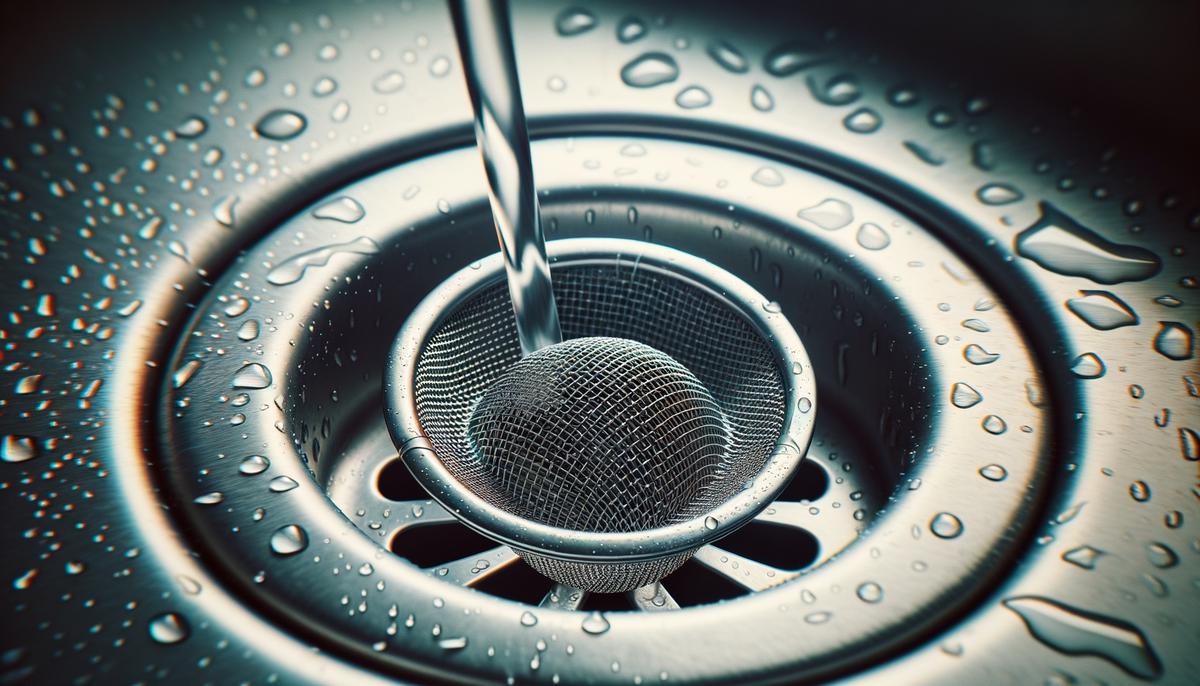
Dispose of Grease Properly
Never pour cooking oils or grease directly into your kitchen drains. Over time, oil and grease can bond with other solids, creating stubborn clogs. Instead, collect the used cooking oil or grease in a can or glass jar. Once it cools and hardens, throw the container in the trash. This simple habit prevents grease from causing havoc in your pipes.
If you cook frequently, consider keeping a dedicated grease jar. This small step can save you from the inconvenience and potential cost of hiring a plumber to clear a major grease clog.
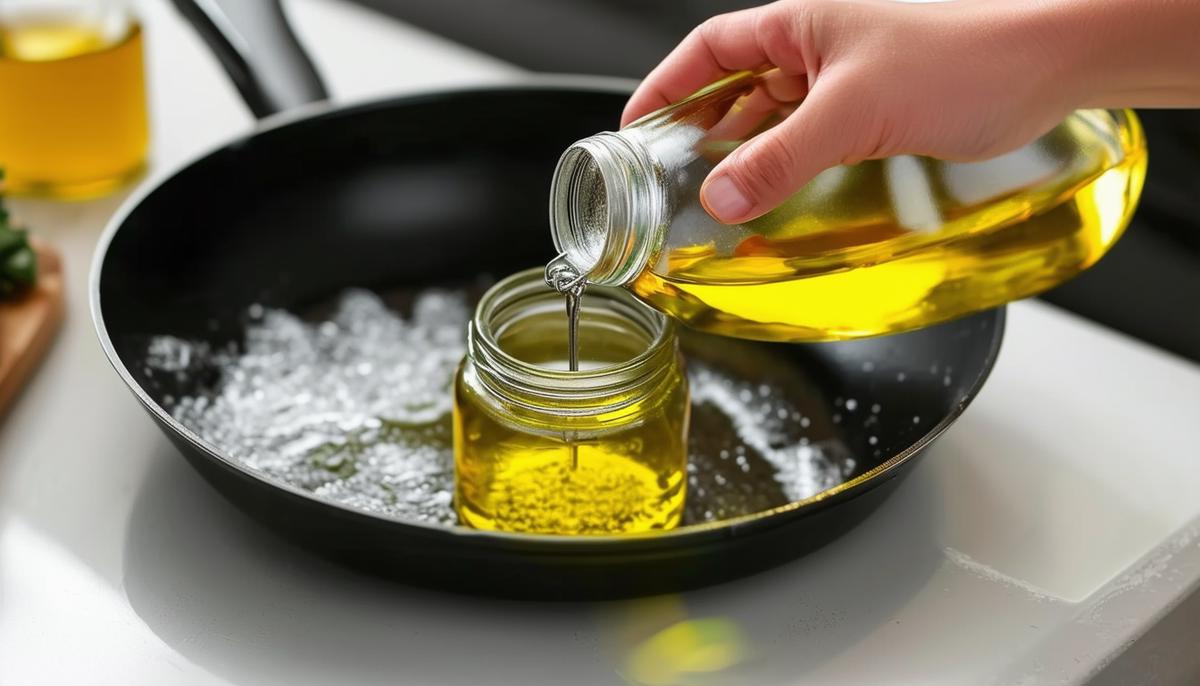
Rinse Kitchen Drains with Hot Water
After each use, run hot water down the drain to help small food particles flow through and prevent clogs from forming. Hot water aids in melting away lingering grease or tiny food remnants.
If your kitchen drain is prone to frequent clogs, pour very hot water down the drain once a week for a more intense flushing session. Incorporating this into your kitchen cleaning routine is effortless and doesn't require any fancy tools or expensive products. It's a simple, no-fuss solution that can ensure your drains remain clear and functional.
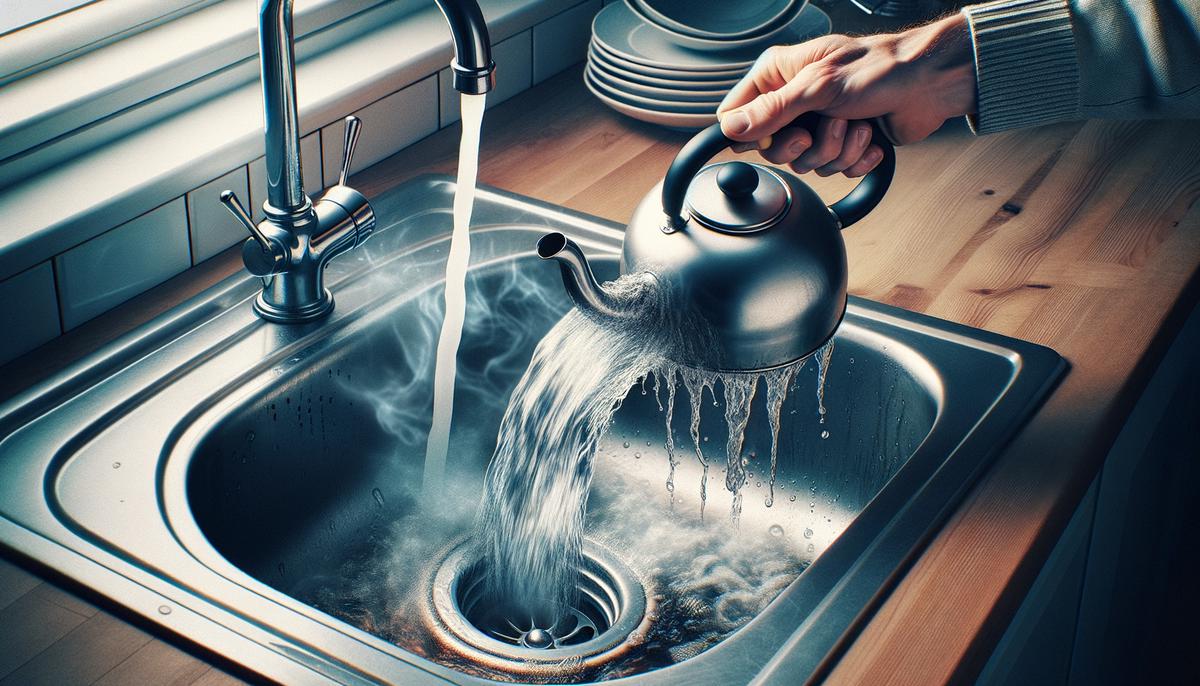
Use Baking Soda and Vinegar
Baking soda and vinegar are household champions for keeping drains clean and odor-free. Pour a cup of baking soda down the drain, followed by a cup of white vinegar. The fizzing action indicates that these natural cleaners are breaking down grime, organic matter, and residues that may lead to clogs.
- Allow the mixture to sit for about 15 minutes
- Rinse with hot water to flush away any remaining residue
This natural combination is gentle on your plumbing and doesn't introduce harmful chemicals into your home. Doing this once a month can significantly reduce the likelihood of tough clogs forming.1
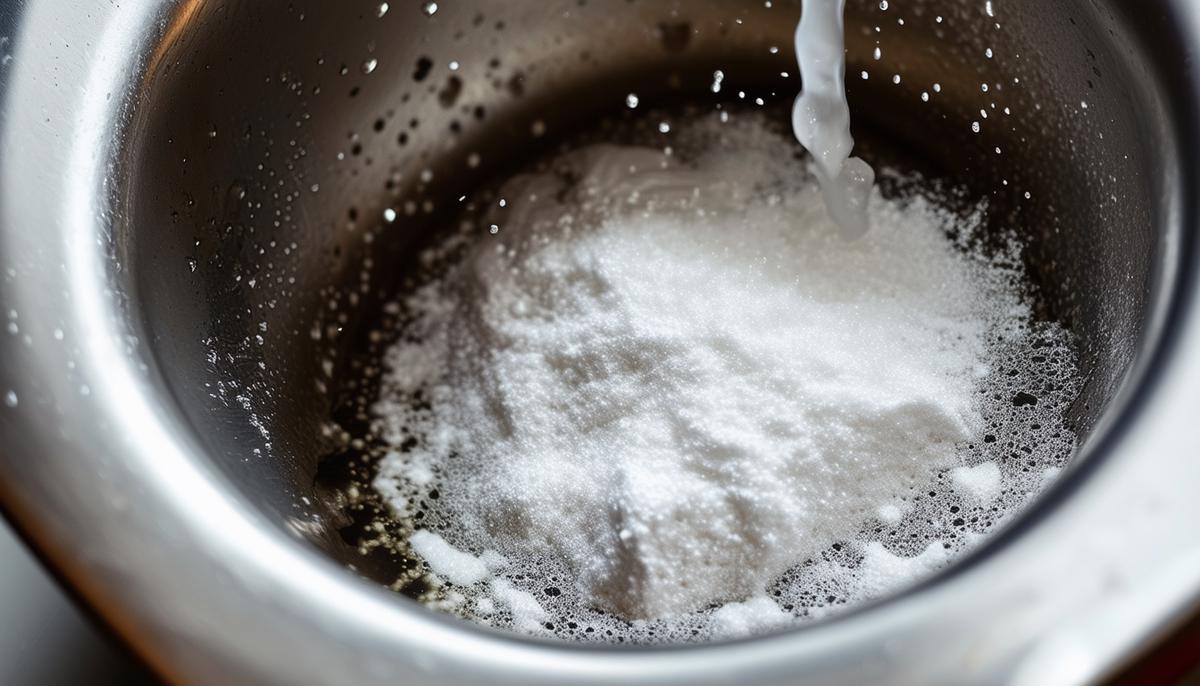
Avoid Harsh Chemical Cleaners
Recognize the potential risks associated with using harsh chemical cleaners. The acidic properties in many chemical drain cleaners can corrode your pipes over time, leading to costly damage. Instead, start with a less aggressive approach, such as:
- Using a plunger
- Using a plumber's snake (also known as an auger)
These tools can work wonders on blockages without the harsh effects of chemicals. If you prefer natural alternatives, baking soda and vinegar offer a safe and effective way to tackle clogs. By avoiding harsh chemicals, you're taking proactive steps to ensure the longevity of your pipes and contributing to a healthier home environment.
Brush Hair Before Showering
Brushing your hair before showering can make a big difference in keeping your shower drain clear of clogs. Loose hair strands can mix with soap scum and other residues, accumulating and forming blockages over time.
Keep a hairbrush within reach in your bathroom and spend a minute or two brushing through your hair thoroughly before turning on the shower. This quick step can significantly reduce the amount of hair that ends up going down the drain. For those with long or thick hair, or even pets that you occasionally bathe in your tub, this habit can be particularly beneficial. Incorporating this into your daily routine is a proactive way to maintain clear and functional drains.

Photo by elijahbcrouch on Unsplash
Regularly Clean Drain Stoppers
Keeping your drains free-flowing isn't just about what you use or how you use it—making sure to regularly clean your drain stoppers plays a critical role too. Drain stoppers, whether in the sink or the shower, are notorious for collecting hair, soap scum, and all sorts of debris. Over time, this buildup can slow down drainage, and a serious clog could be on your hands.
Maintaining clean drain stoppers is neither time-consuming nor complicated. It's a task that, if done regularly, can prevent a lot of hassle down the road. Here's how to easily integrate this into your routine:
- Make it a habit to inspect and clean your drain stoppers weekly. This simple step ensures that you catch any debris before it has a chance to accumulate and cause problems. Pull out the drain stopper from your sink or shower—most of these can be swiftly and effortlessly removed without any tools.
- Once you've got the stopper out, take a moment to observe any visible buildup. You might notice a bit of hair wrapped around it or a soapy residue clinging to the surface. Using a small brush or an old toothbrush, scrub away any gunk you see. For tougher grime, a little baking soda and warm water can add just the right amount of abrasion to get things clean.
- If you prefer a deeper clean, soak the stopper in a mixture of warm water and vinegar for about 15 minutes before scrubbing. This will help to loosen stubborn soap scum and make the subsequent cleaning more effective. Vinegar's acidic nature breaks down buildup effectively, leaving your stopper and drain smelling fresh and free of blockages.
- After cleaning, rinse the stopper thoroughly under hot water. This helps remove any bits of debris you might have missed during the scrubbing. Once it's clean, simply pop it back into your drain.
Incorporating this simple step into your regular cleaning regimen pays off. Not only will it keep your drains flowing smoothly, but it also helps to eliminate unpleasant odors. Hair and soap scum can decay over time, leading to bad smells emanating from your drain. Regularly cleaning your stoppers tackles this issue, ensuring that your bathroom and kitchen stay fresh.
It's a practice that complements other clog-preventing habits perfectly. When combined with using a mesh drain strainer, disposing of grease properly, and rinsing your drains with hot water, regularly cleaning your stoppers creates a strong defense against clogs. It's about being proactive, rather than reactive—maintaining cleanliness to prevent problems before they start.
So, as you go about your weekly chores, add "clean the drain stoppers" to your list. It's a small investment of time that yields big benefits, keeping your home's plumbing functioning efficiently.
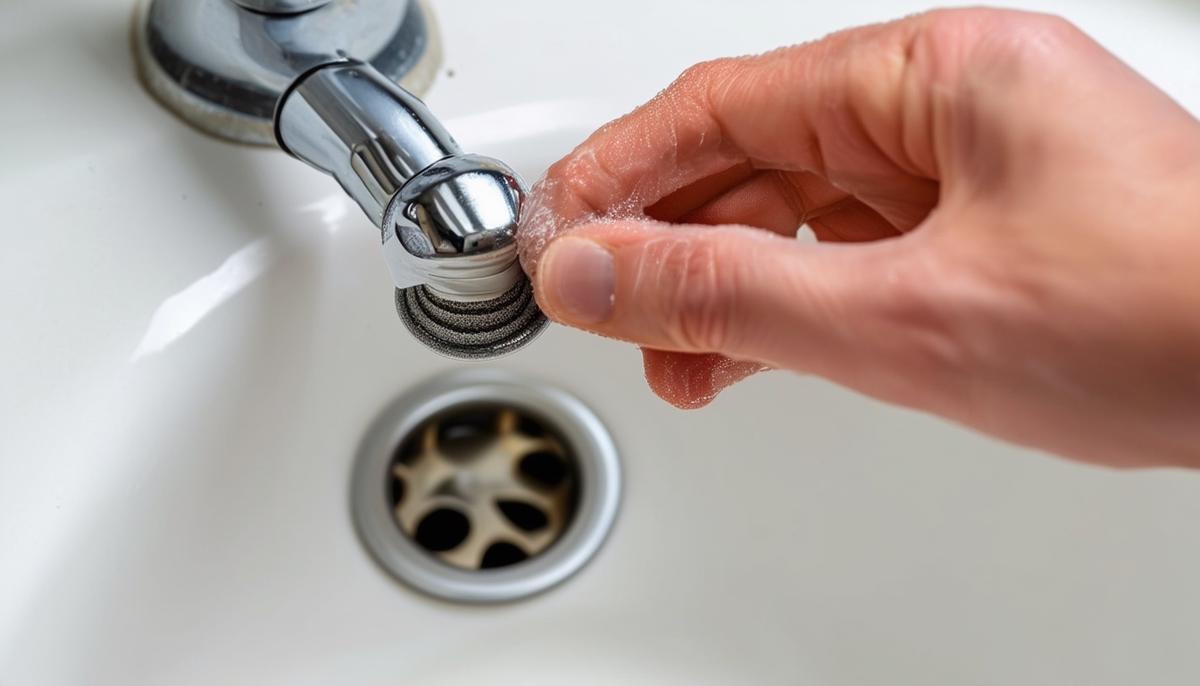
Annual Professional Drain Cleaning
While regular at-home maintenance can make a significant difference in preventing clogs, it's also wise to consider the benefits of hiring a professional to clean your drains at least once a year. An annual professional drain cleaning can bring advanced tools that most of us don't have in our home toolkit.
When you bring in a plumbing expert, you're gaining access to sophisticated equipment and their extensive experience. One of the critical tools professionals use is the CCTV drain camera. This specialized device is designed to travel through your pipes, capturing real-time footage of the interior condition. The camera helps the plumber identify any hidden issues that might be lurking deep within your plumbing system. From hairline cracks and minor root intrusions to significant buildup and early signs of corrosion, a thorough CCTV inspection can spot potential problems before they escalate into major repairs.
Once any trouble spots are identified, professionals often use what is known as a plumber's snake, or auger, to clear blockages. Professional-grade snakes are more durable and can reach farther, maneuvering tricky bends and clearing obstructions more effectively. These snakes are designed to break apart tough clogs and even retrieve items causing blockages, ensuring your pipes are thoroughly cleansed.
An annual professional cleaning isn't just about addressing visible obstructions. It's also about maintaining the overall health of your plumbing system. Buildup of organic material, minerals from hard water, oil, and grease can slowly narrow the passageways within your pipes. A professional clean ensures that this buildup is thoroughly removed, promoting better water flow and reducing the risk of future clogs.
Professional drain cleaning is often coupled with other preventive measures. Plumbing experts can apply specialized solutions, such as bio-cleaners that repopulate your pipes with beneficial bacteria. These bacteria help to break down organic matter over time, creating a more self-sustaining ecosystem within your plumbing that helps prevent future clogs and keeps things moving smoothly.1
This annual service provides peace of mind. Knowing a professional has validated the condition of your pipes can be reassuring. It's about long-term maintenance and ensuring the longevity of your home's plumbing system. This proactive approach can save you money and stress, avoiding emergency situations that can be both costly and disruptive.
When professionals handle your drain cleaning, you can feel confident that any minor issues will be addressed before they become significant problems. This maintenance helps ensure proper water flow, minimizes the risk of unexpected blockages, and extends the lifespan of your plumbing. By incorporating this annual habit into your home maintenance routine, you're taking a comprehensive approach to care for one of the most critical systems in your house.
By incorporating these practical habits into your routine, you can maintain a clog-free and efficient plumbing system. Remember, small steps like using a mesh drain strainer or cleaning your drain stoppers can make a significant difference. Take action now to ensure smooth water flow and avoid future headaches.
Revolutionize your content with Writio! This article was crafted by Writio.
Leave a Reply